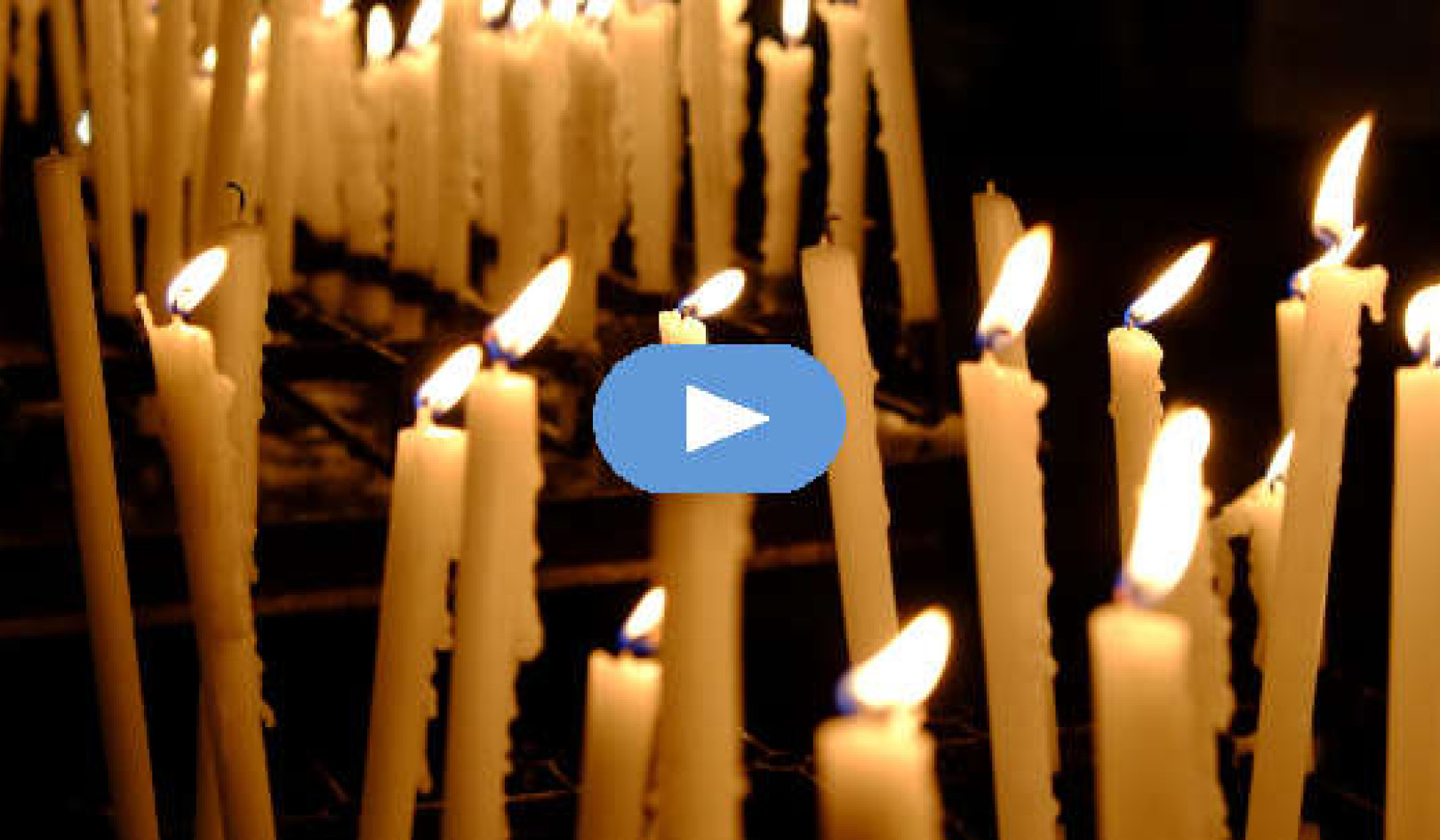
The God I believe in may not be the same God you believe in. And the person standing next to you may not believe in God at all. So, shall we divide ourselves and throw stones? For thousands of years the answer seems to have been Yes.
Hindus trace their roots back nearly four thousand years. Moses led the children of Israel out of Egypt and brought them the Ten Commandments some three thousand years ago. Confucius and the Buddha enlightened us more than two thousand five hundred years ago.
Jesus tried to teach us to love God and each other over two thousand years ago. Muhammad was called and gave us the Qur'an (Koran if you like) more than one thousand five hundred years ago. Even the Humanists have been around at least since the Renaissance.
If there were one "right" way to see or encounter the sacred, shouldn't it be clear by now? Absolutely, crystal clear? And yet it isn't.
The Golden Rule: Common Ground in All Religious Teachings
A clue as to where we should be focusing comes from a fascinating but simple observation. Most of us know that Jesus taught that the essence of how we should act can be found in what has come to be known as the "Golden Rule": Do unto others as you would have others do unto you.
But the great Rabbi Hillel, living roughly a generation before Jesus, taught virtually the same thing. And five hundred years before either one of them, Confucius said the same thing. The Buddha had similar thoughts. So did Muhammad.
From Nigeria there is the simple but no less profound Yoruba proverb: A person about to use a pointed stick to prod a bird should first try it out on himself to see how it feels.
Sacred Traditions Teaching: Treat Others with Compassion
In all of our sacred traditions, we are called to look beyond our own needs and to consider others. In all of our sacred traditions, we are called to community. In all of our sacred traditions, we are called to compassion. The truth is, there has never been a mystery regarding how we are called to treat each other. It extends far beyond the "Golden Rule."
From the Atharva Veda of Hinduism: "Let us have concord with our own people, and concord with people who are strangers to us." The Sikhs and the Jains are quite similar in their outlook. From the Sikhs: "Let all mankind be thy sect." From Jainism: "Consider the family of humankind one."
From the Qur'an of Islam we are taught that God is one, and humanity should be one. "The best Islam is to feed the hungry, and spread peace both among friends and among strangers." From Christianity:"Every kingdom divided against itself is laid waste. A house divided against itself cannot stand.”
So the verdict is in. We are to live together, peacefully, in community, and support each other — friend and stranger alike. Every religion. Every spiritual path.
Who Is Right? Us Against Them and Us Against Us
 Every spiritual approach under the sun has divisions. It's not "just" (for example) Christians disagreeing with non-Christians. Not only do Catholics not agree with Protestants, but Catholics don't agree with Catholics and Protestants don't agree with Protestants. And Muslims divide into Sunni and Shi'a (as well as Sufi and others). And Jews divide into Orthodox, Conservative and Reform (as well as Reconstructionist and others). Buddhists divide. Hindus divide.
Every spiritual approach under the sun has divisions. It's not "just" (for example) Christians disagreeing with non-Christians. Not only do Catholics not agree with Protestants, but Catholics don't agree with Catholics and Protestants don't agree with Protestants. And Muslims divide into Sunni and Shi'a (as well as Sufi and others). And Jews divide into Orthodox, Conservative and Reform (as well as Reconstructionist and others). Buddhists divide. Hindus divide.
So once again, we ask the question: who is right? And it comes back to us clearer than ever that this is the wrong question.
Is It "Whose Beliefs Are Right?" or Instead "What Actions Do Our Beliefs Prompt?"
If the crucial question is not, "Whose beliefs are right?" perhaps it is, "What actions do our beliefs prompt, whatever our beliefs are?"
Does not the answer to the question, "What actions do our beliefs prompt?" far better define who we are than any dogmatic set of "right thoughts," regardless of the theistic, atheistic or agnostic beliefs that gave birth to those thoughts?
Does this mean that we ought to give up and discard our individual beliefs and religious heritage? No! Emphatically no! What we believe as individuals is more than important, it is pivotal. I am who I am because of what I believe. You are who you are because of what you believe. For each of us, individually, our beliefs are crucial.
Giving Up the Belief That There Is Only One "Right" Belief or Religion
What we doneed to give up is the proposition that because I believe it, it must not only be true for me, but true for you as well. What we need to give up are the arrogant, unreasonable assumptions that 1) God has only one voice, 2) that one voice is knowable and 3) we alone know what it is.
The spiritual core of the universe has many voices, and indeed one of those voices is that of the Atheist. Let us rejoice in those many and profound voices and then join together to build a world worth living in.
In other words, the issue must cease to be which religion is "best" or"right" or true. The issue must be what can you, as a unique and special human being, accomplish for others with the spiritual path you have chosen?
What Is the "Right" Action? Act Justly, Love Kindness, & Love Thy Neighbor
The prophet Micah said, "What does the Lord require of you? Act justly, love kindness, and walk humbly with your God?" And according to Luke, when asked what was necessary for eternal life, Jesus simply referred the questioner to the law which instructs us to love God and love our neighbor, and then said "Do this, and you will live.""Do this," Jesus says. So even here, once again, it is not what we believe but what we do.
It is action that counts. But action alone is incomplete, as is the mere expression of compassion towards others. It is when compassion is linked to positive action that we at last start to get somewhere.
©2011 by Steven Greenebaum. All rights reserved.
Reprinted with permission of the publisher,
New Society Publishers. http://newsociety.com
Article Source
 The Interfaith Alternative: Embracing Spiritual Diversity
The Interfaith Alternative: Embracing Spiritual Diversity
by Steven Greenebaum.
Click here for more info and/or to order this book.
About the Author
 Reverend Steven Greenebaum is an Interfaith Minister with Masters Degrees in Mythology, Music and Pastoral Studies. His experiences directing Jewish, Methodist, Presbyterian and Interfaith choirs have helped him to understand the profound wisdom of many spiritual traditions. Steven has dedicated his life to working for social and environmental justice through a multitude of forums. He is the founder of the Living Interfaith Church in Lynnwood, Washington.
Reverend Steven Greenebaum is an Interfaith Minister with Masters Degrees in Mythology, Music and Pastoral Studies. His experiences directing Jewish, Methodist, Presbyterian and Interfaith choirs have helped him to understand the profound wisdom of many spiritual traditions. Steven has dedicated his life to working for social and environmental justice through a multitude of forums. He is the founder of the Living Interfaith Church in Lynnwood, Washington.

























